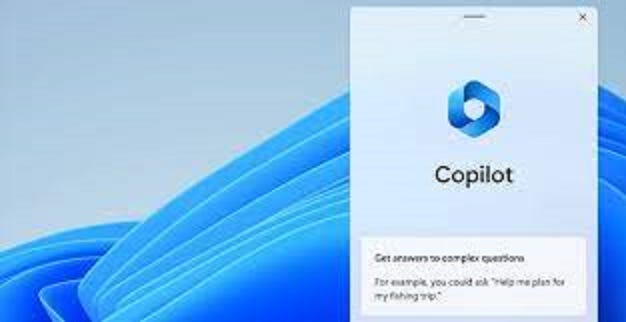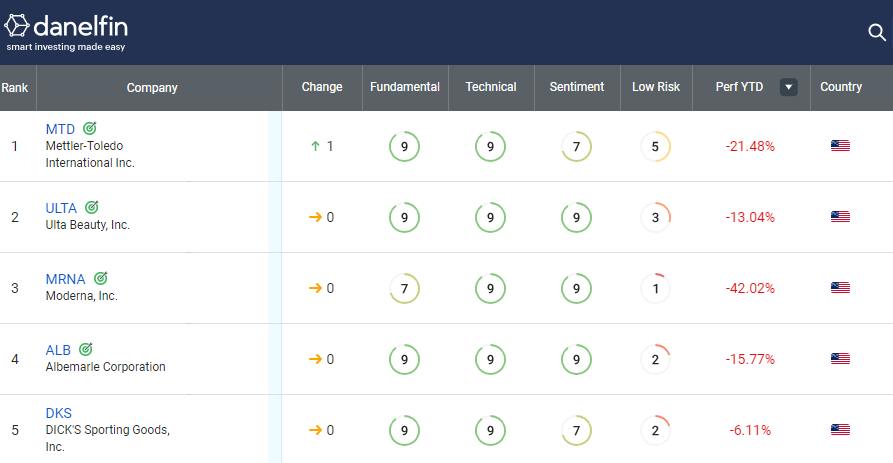Microsoft's Copilot AI Comes to Windows 11 - But is it Worth it Yet?
We Tested Microsoft's New Copilot AI Assistant - What It Can Actually Do Left Us Shocked
Microsoft recently announced the release of a preview version of Copilot, its new AI assistant, for Windows 11 users. Copilot is designed to help boost productivity by assisting with basic tasks and interactions on your PC using advanced AI capabilities.
In their initial announcement and promotional materials, Microsoft showcased some truly impressive features that would set Copilot apart from other voice assistants like Siri or Alexa. The demos portrayed Copilot as almost an AI agent inside your computer that could understand context, complete multi-step tasks, and even interact with applications on your behalf.
However, now that Copilot is in the hands of users, it appears the current early version lacks many of these more advanced AI capabilities that Microsoft advertised. The AI assistant is still quite limited in what it can actually do without manual input and confirmation from the user.
At this stage, Copilot functions more like ChatGPT or Bing Chat than a fully autonomous AI agent. It provides informative responses, but can’t yet perform complex multi-step actions within Windows or applications. Copilot shows potential, but still has a ways to go before achieving Microsoft’s vision.
Hands-On Testing Reveals Current Limitations
To test out Copilot’s capabilities, I asked it to complete a variety of different tasks that were shown off in Microsoft’s promotional materials:
- Open an app and perform a function within it
- Organize desktop windows intelligently
- Create content like Word documents or PowerPoint slides
- Control music playback in Spotify
- Assist with settings adjustment and troubleshooting
Unfortunately, Copilot fell short on many of these tasks:
- It could open apps like Notepad after asking permission, but couldn’t actually type or insert text directly into the app itself.
- Copilot was able to snap my desktop windows into neater arrangement, but the AI didn’t do this proactively based on context. I still had to manually invoke the feature.
- Content creation abilities were limited. Copilot provided text in a message box, but couldn’t insert it directly into documents.
- There was no integration with Spotify to automatically start music playback. It simply opened the Spotify app manually.
- Settings and troubleshooting help provided useful information, but required the user to manually follow all steps.
In most cases, Copilot acted more like an informative assistant than an autonomous AI agent. It's not yet able to take direct action beyond basic functions like opening apps, adjusting settings, or providing contextual information. Copilot is certainly helpful, but still requires significant user direction.
So Is Copilot Actually Useful Right Now?
Based on my testing, the current version of Copilot provides only marginal utility over standard voice assistants like Siri, Alexa, or Google Assistant. It can understand natural language queries well and responds with useful information. But the lack of autonomous complex task completion limits its capabilities.
That said, there are a few areas where Copilot does add value:
- Convenient access to AI assistance directly within Windows, without needing to invoke a separate tool
- Integration with Microsoft Edge allows Copilot to read and summarize pages you have open
- Can open Windows settings/apps to assist with basic configuration and troubleshooting
- Helpful for simple multi-step procedures like taking screenshots or creating Office documents
- Serves as an effective voice-activated information source for basics like weather, calculations, definitions etc.
So Copilot shows early promise in certain areas. But until it can take more autonomous actions, it likely won't replace existing tools and workflows for most power users. Think of it more as an AI-powered voice assistant than a fully capable digital agent for now.
The Potential Is There, But Full Integration Still Needs Work
It’s clear Microsoft envisioned Copilot as much more than a standard voice AI assistant. The demos indicate Copilot was designed to provide fully integrated AI support across the Windows ecosystem.
For example, Microsoft showed Copilot being able to:
- Pull up a Spotify playlist and begin music playback automatically
- Create a formatted Word document after simply describing what you want
- Interact directly with apps like Adobe Express to create content intelligently
- Reply to emails in Outlook after reading through message contents and context
These types of autonomous cross-application integrations could be transformative. But the functionality just isn’t there yet in the initial Copilot release.
During testing, Copilot was unable to complete similar tasks without significant user input and acceptance of each individual action. The AI assistant can’t yet take complex initiative or work seamlessly between apps and services.
This hints that Microsoft still has work to do on building Copilot’s contextual awareness and permissions to enable deeper system integration. Much of the magic portrayed in the teasers is missing at this stage.
The Need For More Robust Integration Across Microsoft 365
Interestingly, Microsoft highlighted “Microsoft 365 Copilot” as a key integration that will set Copilot apart from competitors. Microsoft 365 Copilot aims to provide AI assistance tailored to productivity apps like Outlook, Word, PowerPoint, and Teams.
Some of the examples touted include:
- Automatic drafting of emails, documents, or presentations based on descriptions
- Summarizing and extracting key information from Office documents
- Intelligently organizing content from emails and files into presentations
- Event planning by pulling dates, locations, and context from multiple documents
- Proactively providing reminders and recommendations based on workflow habits
This level of tight integration with Microsoft 365 apps isn’t available yet, but presents tremendous potential. However, Microsoft 365 Copilot isn’t slated for release until November 2022.
It remains to be seen whether Microsoft can truly deliver on this promise of deep AI integration across its productivity suite. If executed well, Microsoft 365 Copilot could be a game-changer for workflows. But the initial Windows Copilot lacks some of that robust interoperability.
Is Proactive, Autonomous Assistance Still Far Off?
Given Copilot’s limitations so far, Microsoft’s vision of an AI agent that can work proactively across applications seems further off than initially implied.
The demos portray Copilot doing things like:
- Rearranging your desktop and apps automatically to simplify workflows
- Proactively providing suggestions without needing to be asked
- Completing multi-step procedures across services autonomously
- Fetching information from the internet or your PC to assist without direction
This would require Copilot to have more permissions, contextual awareness, and initiative than it currently does. Right now, Copilot works best as a responsive assistant, not as an autonomous agent.
It will likely take considerable AI training and refinement before Copilot can reliably complete complex workflows and take useful initiative. Constructing the contextual awareness needed is extremely difficult - AI still struggles with common sense.
Basic information retrieval and simple task completion are much more feasible in the short term. But fully realizing the initial vision will require broader access and more advanced AI models.
Is Copilot Worth Upgrading to Windows 11 Right Now?
Given the limitations outlined above, my recommendation is that Copilot isn’t yet a compelling enough reason to upgrade to Windows 11 alone. Unless you urgently need basic AI assistance, you can likely achieve much of the same functionality with other tools for now.
Upgrading your OS is a big commitment, and Copilot doesn’t yet provide enough utility in its current form to justify that switch. Much of the integration and automation Copilot promises is still in early developmental stages.
That said, Windows 11 brings other helpful improvements that are worth considering in combination with Copilot:
- Performance optimizations like DirectStorage for gaming
- Enhanced security features like hardware based virtualization
- Modernized interface with design tweaks and customization options
- Better touchscreen and stylus support on 2-in-1 devices
- Android app support via Amazon AppStore integration
So if you were already planning to upgrade for some of those benefits, Copilot provides some additional nice-to-have AI assistance. But look at Windows 11’s broader improvements rather than Copilot as the main motivator right now.
An Exciting Glimpse of the Future
While Copilot may not offer game-changing assistance yet, it clearly represents Microsoft’s ambition to make AI a core part of the Windows experience.
Seeing capabilities like conversational interaction, cross-app integration, and intelligent automation prototyped within Copilot provides an exciting glimpse of the future.
As Microsoft expands the permissions, contextual capabilities, and integration with its broad software ecosystem, Copilot has enormous potential to evolve. It sets the stage for AI assistance enhancements across Windows, Office, and Microsoft’s cloud services.
Much like the early days of Siri and voice assistants, we’re still in the very early stages of exploring how AI could transform personal computing. Copilot provides a promising peek, but still needs refinement before it can change productivity workflows.
Microsoft is pushing the envelope and making big investments in this space. As the AI models and integration improve, Copilot could become indispensable. It’s still early, but the vision is bold and the appetite for intelligent assistance is only growing.
While the initial version leaves plenty of room for growth, Copilot puts Microsoft at the forefront in pioneering how AI could reshape the computing experience. They have laid the groundwork for Copilot to potentially become an integral part of Windows and Microsoft 365 in the future.
It may take years to fully realize Microsoft’s ambitions, but Copilot shows they are headed firmly in that direction. As AI capabilities evolve, we’ll likely look back at Copilot as the promising start of a revolutionary shift - even if it isn’t quite ready yet today.








